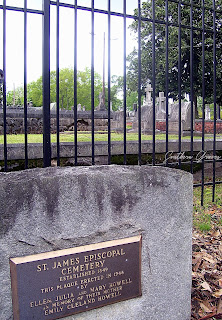Atlanta Constitution (Georgia)
Tuesday, 8 June 1926
J. B. GLOVER, VETERAN, PASSES AT MARIETTAMarietta, Ga., June 7. -- (Special.) James Bolan Glover, 85, Confederate veteran and pioneer citizen of Marietta, died at his residence on Whitlock avenue Monday morning at 11 o'clock following a short illness.Born in Walterboro, S.C., August 14, 1841, son of John Heyward Glover and Jane Bolan, he moved to Marietta when a boy and worked with his father at the tannery business for several years preceding the civil war. When his native state, South Carolina, seceded from the union he immediately joined the colors and enlisted in the Palmetto Guards of Charleston, S.C. He was the first man to leave Cobb county for the war, and the last surviving member of that company, which was commanded by Colonel Renshaw. He was afterwards transferred to General J. G. Walker's staff and later to the seventh Georgia cavalry, which was composed almost entirely of Cobb county men. He participated in the first battle of Manassas, the siege of Petersburg and several other important engagements around Richmond.He was in Virginia when Lee surrendered and returned home to find Marietta and Cobb county suffering from the devastations of Sherman's campaign.Mr. Glover held several political positions in the county. For years he served as tax collector and later county clerk. He helped organize the Marietta and North Georgia railway, now the L. & N. to Knoxville, and was receiver and superintendent for that system prior to its sale. He has been engaged in the mercantile business in Marietta and at the time of his death was a stockholder and director of the Glover Machine Works, of which his son, J. W. Glover, is president.Mr. Glover was a deacon in the Presbyterian church of this city and took an active part in all church work prior to his illness. He was genuinely interested in charity work and contributed large sums of money to the needy.He is survived by one son, J. W. Glover, and four daughters, Miss Fannie Glover, of Marietta; Mrs. Maybelie G. Hubbard, of New York; Mrs. John M. Dunn, of Washington, D.C., and Mrs. George V. Welsh, of Marietta; one brother, Edward Glover, of Dallas, Texas, and one sister, Mrs. Minnie McComb, of Albany, Ga., and grandchildren as follows: Mrs. W. M. Brumby, Mrs. A. D. Little, Mrs. H. B. Harmon, James Bolan Glover III, Miss Frances Welsh and Miss Katrina Van Rensselaer.Funeral services will be held Tuesday from the residence, Rev. J. H. Patton, pastor of the First Presbyterian church, officiating. Interment will take place in the Episcopal cemetery.
James was buried near his wife, Ann Eliza Brumby. She was born 29 November 1843 at Tuscaloosa, Alabama, and died 27 March 1915 at Marietta, Georgia.



Comments